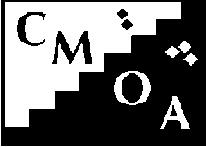
CAREER MEDICAL OFFICERS
BULLETIN
Volume 1 Number 1
December 1996
The Brennan Report
Report into Non- Specialist Hospital
Careers
Summary of Findings and Recommendations, with comment from the Inaugural
Meeting of the Career Medical Officers Association.
The title "Career Medical Officers" is stigmatised and should
be scrapped. It should be replaced by Hospital / Community Medical Officer,
as appropriate.
This recommendation was rejected at the meeting. Most of the people present
felt happy with the designation "Career Medical Officer"
and thought that any stigma was unwarranted and probably confined to
those who had least contact with CMOs. In any case most of the other
terms are too restrictive or even inaccurate. This matter can be raised
at the first annual general meeting if necessary, however in the meantime
we are proud to call ourselves CMOs.
Motion: That the term Career Medical Officer be retained
and applied in all relevant cases.
Vote: Passed Unanimously
Postgraduate Medical Councils (PMCs) should assume professional responsibility
for non-streamed medical officers.
This professional responsibility would be an extension of the role they
now undertake for Interns and first year RMOs in some jurisdictions.
The role would involve:
- accreditation of posts
- accreditation of rotations
- development of education packages
- certification of experience
- certification of competencies
PMCs will need to be adequately resourced for this to occur.
These several points were also rejected by the meeting. The PMCs have
neither the interest nor the resources to look after CMOs. The work they
do in supervision of the interests of JMOs is excellent, however to also
assume responsibility for CMOs would be both extremely difficult and would
suggest that both groups are similar (which is not the case). The
best people to look after the interests of CMOs are CMOs themselves.
Motion:That whilst the CMO's Association recognises and appalauds
the contributions of the PMC within their charter, that we do not submit
ourselves to their authority at this time.
Vote: Passed Unanimously
Motion:That the CMO's Association should assume professional responsibility
for its members.
Vote: Passed Unanimously
There should be a significant contribution to the costs from the doctors
themselves. (Similar to the contribution of trainees in specialist college
programs)
Not relevant at the present time.
Wherever possible, educational packages should profitably be developed
with Universities and Colleges that lead to awards (Graduate Diplomas,
Masters, degrees etc....)
The meeting was in agreement with this point.
Motion: The Association should develop educational packages, in
association with the relevant professional bodies, leading to awards and
experience relevant to the members own individual needs.
Vote: Passed Unanimously
Career advancement should be based on training and competency, not just
years of service.
In theory, the Association agrees.
Recognition and certification need to be portable. This can best be
achieved by the Australian Medical Council developing national standards
as it has done for Interns.
Certainly recognition and certification need to be portable (both between
hospitals and other workplaces and also between states. Who
should be responsible for this is not clear at present.
Motion: That recognition of service and certification of training
need to be portable.
Vote: Passed Unanimously
The profession and the industry need to accept the responsibility for
clearly documenting the role and responsibilities of these doctors in the
workplace.
CMOs must be involved in all discussions.
The structure needs to be flexible enough to allow for all forms of
practice, salaried, sessional, part-time & fee/service.
Absolute Agreement.
For salaried non-specialist doctors who have appropriate experience
and training, independent clinical practice and even rights of private
practice need to be allowed for.
Agreed.
A national body of non-specialist hospital practitioners may emerge.
Has emerged!
Such a movement must come from doctors themselves and will not occur
overnight.
It did.............and it did (almost).
Training and experience gained in non-specialist/non-streamed positions
should be recognised by the appropriate bodies. (NASQAC/Specialist Colleges).
Agreed.
As a starting point, an alternative pathway to Vocational Registration
through this stream would be possible, especially where procedural skills
and competencies gained as a HMO were required for some rural general practice
vacancies. Additional training in general practice skills would be required.
General agreement - a very important point for those practitioners who
are presently involved in both CMO and GP practice, but also for those
who want to engage in some general practice in the future.
The principle of multiple pathways to specialist recognition is acknowledged
in some disciplines but not in the mainstream Colleges.
Motion:That the Association seeks to examine alternate pathways
to specialist recognition and vocational registration
Vote: Passed Unanimously
The emerging role of Universities in graduate education may force these
traditional approaches to speciality training to be reconsidered.
The proposals in this Report can be advanced by pilot studies. These pilot
studies should be in at least two jurisdictions. Queensland are well advanced
and it would be an obvious place to start.
We will need to consider these proposals in more detail.
With the help of a surgeon he might yet recover, and prove an ass.
Midsummer Night's Dream V. I. 298 -299
Like many a commisioned study, this may sit on a desk
somewhere and have nothing further done about it.
Or it might become the kernel of some productive planning.
It may be up to us, the CMO's, to make that happen.

 Return to Vol 1 No. 1 Contents Page
Return to Vol 1 No. 1 Contents Page
 Return to CMO Bulletin Menu
Return to CMO Bulletin Menu
 Return ASCMO (formerly CMOA) Home Page
Return ASCMO (formerly CMOA) Home Page